- Home
- Mallory Kane
The Pediatrician's Personal Protector Page 2
The Pediatrician's Personal Protector Read online
Page 2
Why hadn’t she?
She looked down at the key in her hand. Suddenly, she needed to go inside and look at her father’s things. See her sister’s room. Wallow in some more guilt.
She slipped the key into the lock and turned it. The door opened easily, silently.
Christy ducked under the crime-scene tape. She pushed the door wide. The first thing that struck her was how dark the inside of the house was. The second, that it had been that way ever since their mother had been killed when Christy was sixteen and Autumn was twelve.
Leaving the front door open for light, she stepped over to her father’s recliner and turned on the lamp on the side table. The glow was feeble. After a couple of seconds, her eyes adapted to the dark and she could see a little bit.
Smudged gray dust outlined a large square on the side table. She wiped a fingertip across it. Fingerprint dust. It had to be. The peculiar color distinguished it from household dust.
Looking at the table, Christy knew immediately what had lain there. Dad’s scrapbook. More pain gnawed at her heart. Ever since she could remember, he’d kept it. How many times had she sat in his lap as he’d pasted pictures of her and baby Autumn in the leather-bound book and carefully, in neat, precise printing, labeled each one with their name, the date and a sweet or funny comment?
But that image quickly morphed into the memory of Detective Ryker Delancey showing her the pages in the back of that beloved book, behind the family pictures. Pages containing baby photos of girls she didn’t know, with comments written beside them in a shaky hand she hardly recognized as her father’s.
Those were her father’s victims, and Detective Ryker Delancey had made her look at them, made her read her father’s careful notes about where they lived, when their birthdays were and when he planned to kill them. Then the detective had demanded to know if she’d seen them before.
Of course she’d never seen them. Angrily she swiped her hand across the table’s surface, obliterating the dust outline of the book. Did the detective know he’d destroyed every last good memory from her childhood? Did he care?
She dusted her hands together. She should leave. She knew she wasn’t supposed to cross crime-scene tape. But this was her home, or it had been. Didn’t she have a right?
She glanced desperately around the dimly lit room, hoping to find something—anything—that would give her an explanation for why her father had done what he had. Something rational that she could take to the police and say, “Here, look. This is what he was doing. Now it makes sense, doesn’t it?”
But she knew there was nothing to find. No rational explanation, no sane reason.
She blinked and realized her gaze had settled on a framed picture Autumn had drawn of their mother. It hung on the wall above the television. Christy’s eyes filled with tears. Their mother had been beautiful and smart. Autumn had looked just like her. She stepped over and touched the glass. More dust. She sneezed.
Guilt and embarrassment tightened her chest, making it difficult to breathe. Anyone coming into this sad house would immediately see how badly she’d neglected her father.
She reached into her purse for a tissue.
“Freeze!” a harsh voice barked.
Shocked, she turned. The unmistakable silhouette of a uniformed police officer darkened the doorway.
“Wait!” she called out, her hand still inside her purse. “I’m—”
“I said freeze!”
She froze.
The harsh beam of a flashlight swept her, blinding her as it passed over her face. Finally, the beam stopped on her hands.
“Hold it!” he barked when she started to pull her hand out of her purse. “Don’t move that hand.”
“Oh, no. It’s okay. I was just—”
“Stop! Now I want you to lift your hand out of your purse, thumb up.”
Christy frowned, but tried to comply. She raised her hand until her thumb was visible over the edge of the purse’s clasp.
“Okay,” the officer said, his gun still pointed at her, his eyes bright in the dimness of the doorway. “Now—slowly, lift your hand all the way out, and if I see anything in it, I’ll shoot.”
Numb with fear, she did what he said, spreading her shaky fingers to demonstrate that they were empty.
The officer’s stance relaxed a bit. “Drop your purse. Do it!”
She dropped it.
“How’d you get in here?”
“Please,” she said. “I’m—”
“How?”
“My key. It’s in my purse.”
The officer shone the beam of the flashlight in her face again. “Are you alone?” he asked.
“Yes. Of course.”
“Step outside,” he continued, backing across the threshold. “Keep your hands where I can see them.”
She complied, following him until she was on the porch and he had backed down the steps to the sidewalk. She saw the police car parked behind her rental car.
“Who are you?” he snapped, once he got a look at her in the afternoon sunlight.
“Chr-Christmas Leigh Moser. Albert Moser is my father.”
“Your father?” He rubbed a hand across the bald top of his head.
She understood the slight note of bewilderment in his voice. Until twelve days ago she’d thought the same thing. Serial killers didn’t have daughters, families, lives.
“Don’t you know you’re not supposed to cross crime-scene tape?”
Christy shrugged carefully. “I’m sorry,” she said innocently. “I’ve never been involved in a crime before.”
The officer touched the microphone on his shoulder. “Sneed here. I’m at the Moser scene. Cancel backup. It’s the perp’s daughter.” He aimed a stern gaze at her. “You need to leave, ma’am. If you go to the sheriff’s office over on Columbia Street and fill out the proper paperwork, you can get access to the scene once the crime lab has released it.”
Horror enveloped her like a dark cloud. “The perp? The crime lab?” Her stomach turned over again and acrid saliva filled her mouth. She swallowed hard.
“Why is my father’s house a crime scene?” she demanded, her voice hollow to her own ears. “He didn’t do anything here.” She shuddered as the scrapbook’s pages rose before her inner vision and the court bailiff’s bland voice listing the women her father had killed played over in her mind. “Did he?”
He sniffed. “The suspect’s residence has been declared part of the crime scene, as have his vehicles.”
“I see,” she said, feeling numb. “Thank you.”
The policeman gestured toward her car. “Now get on out of here,” he said as he holstered his gun.
She had no choice but to obey him. She walked past him down the sidewalk. As she did, the microphone attached to his shoulder crackled. The only words she could make out were Moser and hospital.
“What?” she exclaimed, turning back toward him. Her heart thudded painfully. Her father? Hospital? Oh, no!
The policeman spoke into his mic. “I’ve got the daughter here. I’ll let her know.”
“Ms. Moser,” he said. “That was the dispatcher. Your father has suffered a heart attack. He’s being taken to St. Tammany Parish Medical Center.”
“Oh, no!” Christy breathed. “Not again!” She started toward her car.
“Ma’am?” the officer called after her. “I can get you there faster in the squad car.”
Christy stopped in her tracks. “Thank you,” she said.
As she got into the police car and the officer cranked it and sped away, blue lights flashing, she prayed, “Please don’t let my father die before I get there. I need to tell him how sorry I am.”
THREE HOURS LATER, after her father had been moved from the emergency room to the cardiac care unit, Christy left the hospital. The nurse in charge had told her that she wouldn’t be able to see him again until morning. She argued that she was a physician and demanded to see the doctor in charge. But when the cardiac specialist found out she was
a pediatrician, he’d smiled apologetically and told her the same thing. It was a hospital policy. Intensive-care visiting hours must be observed—by everyone.
So she’d called a taxi to take her back to her dad’s house to pick up her rental car. Then, exhausted, she headed to the Oak Grove Inn, a bed-and-breakfast she’d booked in Chef Voleur, stopping along the way to pick up a bottle of wine.
After her flight the night before, she’d barely had time to unload her bags and fall into bed. Then this morning she’d been up at dawn, unable to sleep with her father’s nine o’clock sentencing hearing looming. Now more than twelve hours later, her dad was in the hospital, and all she wanted to do was go back there and sit with him. But she couldn’t. The last thing the nurse had told her was to rest. “It’s the best thing you can do for your father now. It won’t help him if you’re exhausted.”
Irritatingly, it was the same thing she told worn-out parents of her young patients. It was bitter medicine to swallow, but she knew the nurse was right.
She took a deep breath and squeezed her burning eyes shut. She vowed to take the nurse’s advice.
As she approached the inn, which was on a quiet street in a residential section of Chef Voleur, she thought about the difference between the north shore of the Pontchartrain and Boston. As much as the north shore had grown over the last twenty years, the cities still retained a lot of small-town character.
She pulled into the small parking lot. A loud roar announced a big pickup pulling in beside her. Living in Boston for six years, she’d forgotten how many pickups were on the roads in Louisiana. She couldn’t remember ever seeing one in Boston proper.
She got out, grabbed her purse and the bag holding the wine and headed for her cottage, sending a vague smile toward the darkened windows of the pickup. As she walked past the main house toward the third of four tiny cottages lined up behind it, a motion-sensing light came on. But her cottage was dark. Someone—the maid?—had turned off the light she’d deliberately left on this morning.
Behind her, heavy footsteps crunched on the tiny seashells that were mixed with gravel to form the path to the cottages. The driver of the pickup, probably.
Her big-city instincts kicked in and she clutched her purse tightly against her ribs as she quickly inserted the key into the door and turned it.
The crunching footsteps came closer.
It’s just the person in Cottage Four, she told herself as she opened the door to slip inside.
A crushing blow hit her on the back and sent her sprawling onto the floor.
Chapter Two
When the blow slammed Christy to the floor, the bag containing the bottle of wine flew out of her hands and landed with a thud in front of her.
Still driven by the momentum of the blow and the weight against her, she pitched forward, hands out to break her fall. She hit the hardwood floor hard and felt a distinct, painful snap in her right wrist.
Pain and panic immobilized her for an instant as a heavy body landed on top of her. He straddled her, pinning her down.
Her heart pounded violently and her limbs quivered. The man grabbed a fistful of her hair and slammed her face down onto the hardwood floor. He put his mouth near her ear. She could smell stale cigarettes on his breath.
She tried to suck in enough air to scream, but his weight pressing her chest into the hardwood floor was too heavy. She tried anyway. All that came from her lips was a feeble squeak.
“Shut your mouth,” his gravely voice whispered.
Christy’s hands were pinned underneath her, and her right wrist pulsed with a sickening pain. Using her left hand, she tried to move, to roll, anything to get him off her. Nothing worked and every tiny movement intensified the piercing agony in her broken wrist. It was making her nauseous.
Whatever the man intended to do to her, she couldn’t stop him. He was too strong and she was too weak.
“Please—” she rasped. “What do you want—?”
His hand pushed her cheek harder into the floor. “Go back where you came from,” he growled. “Or you’re as dead as your sister.”
Terror sliced through her like a razor blade. Her sister’s killer. He’d followed her. Just as the thoughts whirled through her brain, he grabbed her hair again and banged her head against the floor—twice. The blows stunned her.
At some point, she was aware that his crushing weight was gone. Dazed, her head spinning and her wrist throbbing, she managed to roll over onto her side.
Where was he? Dear God—she couldn’t see anything in the dark. Was he really gone? Or was he hiding in the shadows, preparing to kill her?
Instinctively she reached for the tiny can of Mace she carried in her pocket, but when she moved her hand, the pain nearly took her breath away.
She rolled onto her back and tried to reach it with her left hand. It was awkward—almost impossible. Tears welled in her eyes and slid down her cheeks. Tears of frustration, of pain, of paralyzing fear.
Finally, she got her fingers on the object in her pocket, but it wasn’t the Mace. It was her smart phone.
Desperately she grabbed it, trying to press the buttons for 911. But her fingers were shaking too badly. The device slipped from her fumbling fingers and clattered across the hardwood floor.
No!
“Help!” she whispered, her lungs deflated by sobbing. She rolled onto her stomach and reached out with her left hand, feeling along the floor. Where was it?
“Where are you?”
She gasped, at first thinking it was her attacker’s voice. But no. This voice was tinny, mechanical. Was it her phone? She squinted.
There. She saw the light from the display. Thank God. But it was halfway across the room.
Forcing a deep breath into her spasming lungs, she tried to pull herself up enough to crawl toward it, but her right wrist was useless. Worse than useless. If it didn’t stop throbbing, she was going to throw up. The pain was making her sick.
Giving up on trying to move, she cried, “Help me!”
God, what was the name of this place? Her brain was so fuzzy, and she hurt so bad. “Three—! she cried breathlessly. “Cottage Three,” Christy sobbed. “Please hurry!”
REILLY DROVE LIKE A bat out of hell toward the Oak Grove Inn. What if he was wrong? What if he’d misunderstood Christy Moser’s sobbing words? The only cottages he knew about were on Oak Street in Chef Voleur, about two miles from his Covington high-rise condo.
He should have asked her where she was staying when he’d gotten her phone number. Now it was too late. Something had happened to the beautiful black-haired serial killer’s daughter, and she’d called him—because his number was the latest number in her phone.
“Christy? Christy can you hear me?” he yelled into his phone. “Hang on. It’s Reilly Delancey. I’ll be right there.” He kept talking to her because the line was still open. He had no idea whether she could hear him or not. Holding his breath, he listened. Was that a sob? Or harsh, panicked breathing?
“Christy. Talk to me. Where is Cottage Three? Is it Oak Grove Inn?”
“Oak—?”
Fear arrowed through him at her weak, rasping voice. “Christy? I’m coming. Hang in there.”
He careered around the corner onto Oak Street and into the driveway of the B&B. His brain registered three vehicles in the parking lot. A silver Avalon with rental plates, a light blue pickup with Louisiana plates and a Prius with a Mississippi vanity tag that said LVG CPL. He pulled into the parking lot beside the pickup and vaulted out of his car.
Cottage Three. As he sprinted toward the row of small cottages lined up on the grounds of the Oak Grove Bed-and-Breakfast he grabbed his weapon and flashlight from his belt.
“Hey!” he shouted. “Guerrant! Guerrant, you in there?” The owner, Guerrant Bardin, lived in the back of the main house. “Call the police!”
“What the hell?” he heard just as a motion-sensing light flared.
“Call 911!” Reilly shouted. “Get the police over here.
A woman’s been attacked.”
More lights came on. He saw Bardin standing on his back porch in boxer shorts and a T-shirt, with his phone at his ear.
The door to Cottage Three was standing open. Reilly slowed down and approached carefully, holding his gun and his flashlight ready.
He rounded the door facing and the flashlight’s beam hit a female body sprawled on the hardwood floor.
Christy! Horror turned his blood to ice. Then she moved and gasped, and relief flooded him. Automatically, he swept the room with the flashlight’s beam and called out to no one in particular, “Clear.”
Then he crouched beside the black-haired beauty and brushed her silky hair out of her face. “Christy?” he said softly. “Hey, Christy, talk to me.”
“No—” she moaned, trying to push him away.
“It’s okay. I’m Reilly Delancey—” He took a breath. “The police,” he clarified.
At that instant, crunching footsteps approached. Reilly whirled, aiming flashlight and gun at the doorway. “Hold it right there,” he barked.
“What’s going on?” a voice growled. He heard the unmistakable sound of a shotgun shell being chambered.
“Guerrant? It’s Reilly Delancey. Did you call the police?”
“Hell yeah, I did.” Bardin stepped into the doorway and reached around to flip on the lights. He’d pulled on blue jeans over his boxers. “Oh, crap. What happened?”
“I think she was attacked. Don’t touch anything. Wait out there for the police.”
“Is she alive?”
As Bardin spoke, Christy moved her right arm and cried out in obvious pain.
With the lights on, Reilly saw that her slim skirt was ripped, her stockings were torn and one foot was bare. Beyond her, toward the bathroom, her purse had slid across the floor and spilled. A bottle of wine in a paper bag had rolled into a corner. Her phone lay just out of her reach.

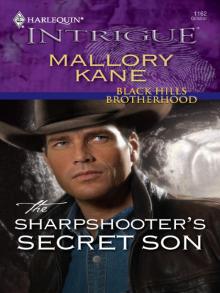 The Sharpshooter's Secret Son
The Sharpshooter's Secret Son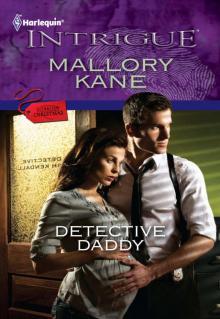 Detective Daddy
Detective Daddy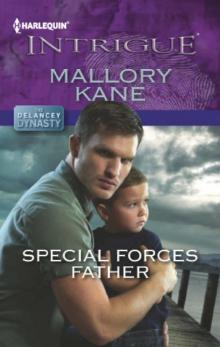 Special Forces Father
Special Forces Father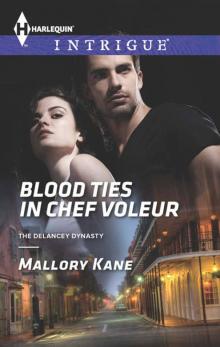 Blood Ties in Chef Voleur
Blood Ties in Chef Voleur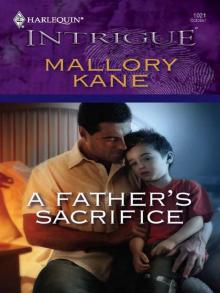 A_Father's Sacrifice
A_Father's Sacrifice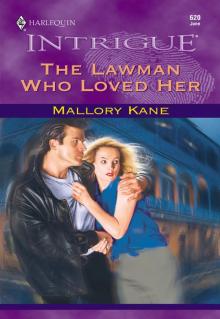 The Lawman Who Loved Her
The Lawman Who Loved Her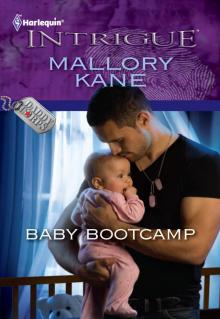 Baby Bootcamp
Baby Bootcamp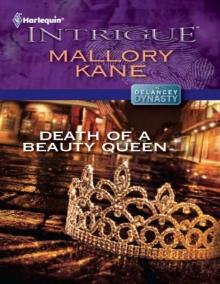 Death of a Beauty Queen
Death of a Beauty Queen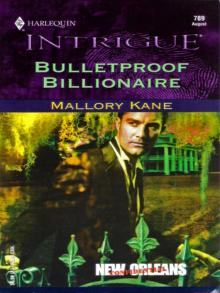 Bulletproof Billionaire
Bulletproof Billionaire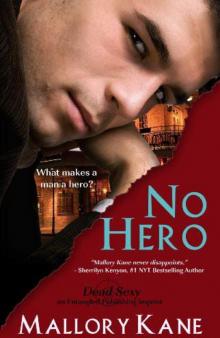 No Hero
No Hero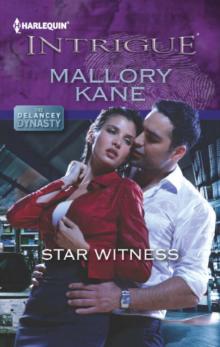 Star Witness
Star Witness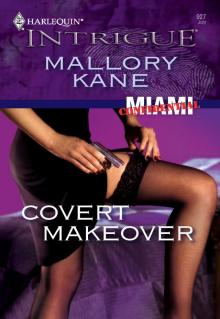 Covert Makeover
Covert Makeover No Saint
No Saint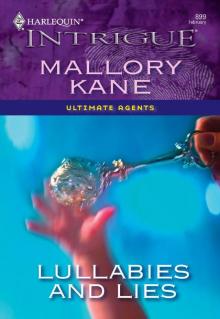 Lullabies and Lies
Lullabies and Lies The Colonel's Widow?
The Colonel's Widow?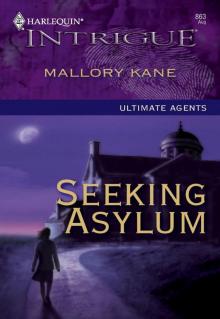 Seeking Asylum
Seeking Asylum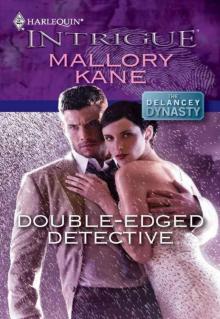 Double-Edged Detective
Double-Edged Detective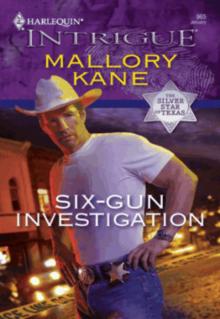 Six-Gun Investigation
Six-Gun Investigation His Best Friend’s Baby
His Best Friend’s Baby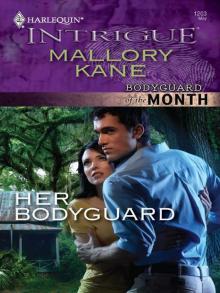 Her Bodyguard
Her Bodyguard Bodyguard/Husband
Bodyguard/Husband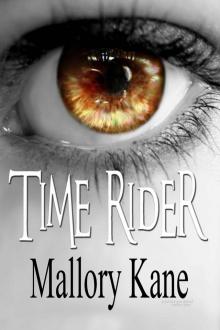 Time Rider (Rise of the Skipworths)
Time Rider (Rise of the Skipworths) It's In His Kiss
It's In His Kiss Ultimate Agents - High School Reunion
Ultimate Agents - High School Reunion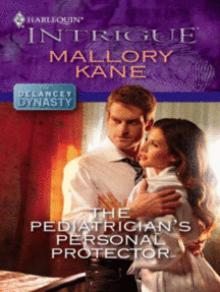 The Pediatrician's Personal Protector
The Pediatrician's Personal Protector Private Security
Private Security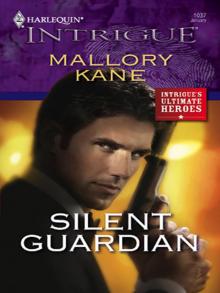 Silent Guardian
Silent Guardian September Rain
September Rain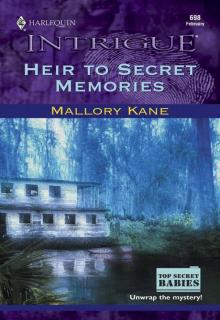 Heir to Secret Memories
Heir to Secret Memories High School Reunion
High School Reunion